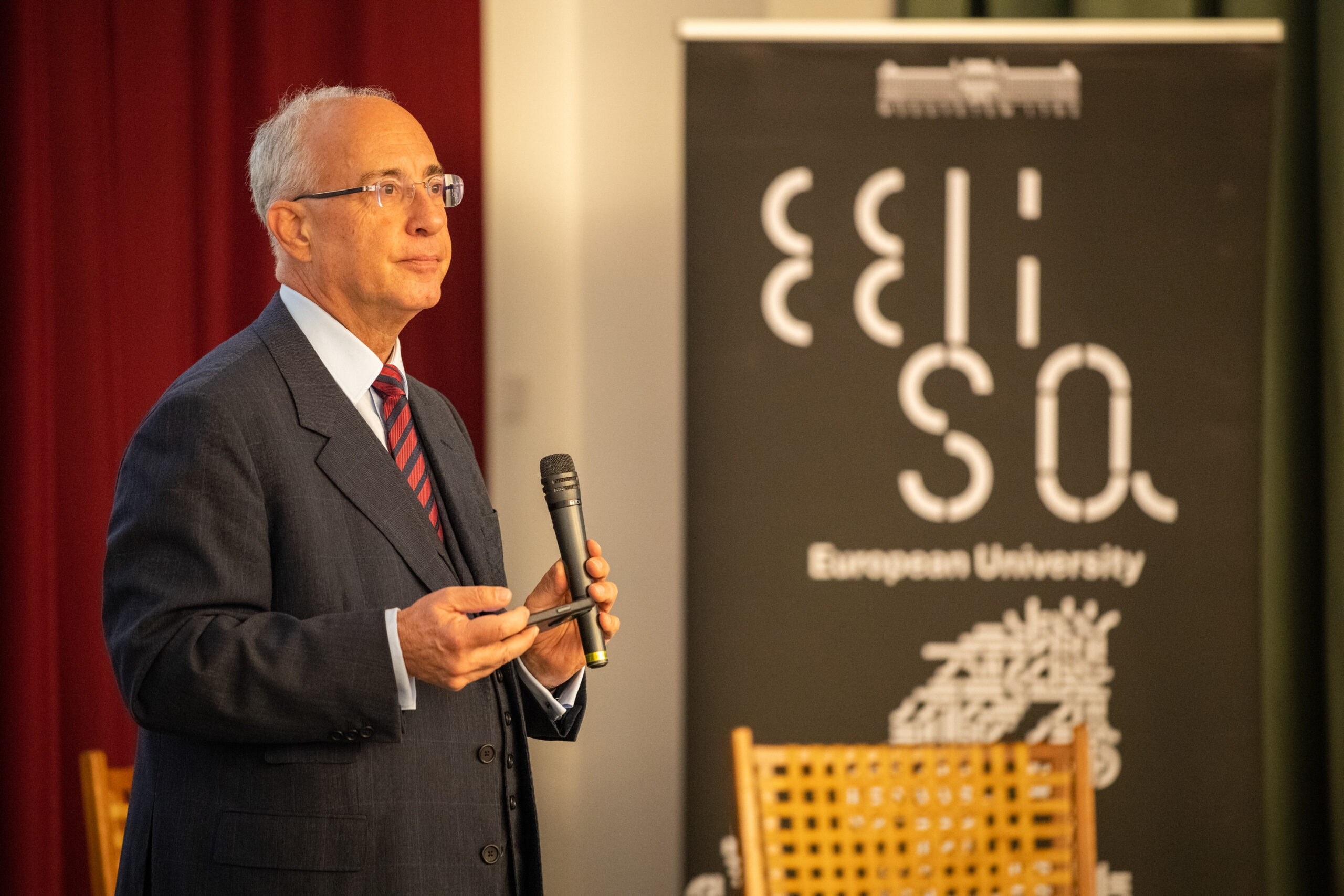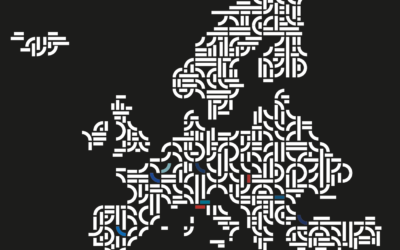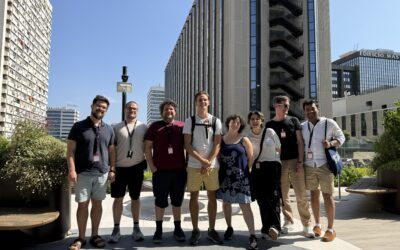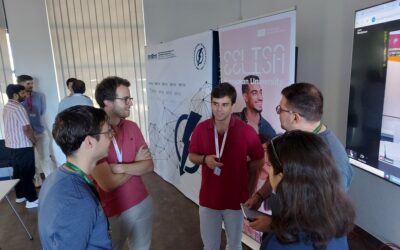EELISA, the alliance of 10 leading technology universities from Europe, receives another round of funding from the European Union following its first successful project.
The event began with a short video depicting the events of the first project of EELISA (to see this video, visit EELISA’s Youtube site). Participants of the project kick-off meeting included Dale Martin, EELISA’s president, Tibor Czigány, rector, Emília Koczka, née Csiszár, vice-rector for international affairs and BME’s researchers and students involved in the EELISA projects. Gergely Vígh, director of the Directorate of Foreign Language Programmes joined the meeting online. The event was moderated by Sarolta Tóvölgyi, assistant professor of the Department of Ergonomics and Psychology of BME’s Faculty of Economic and Social Sciences.
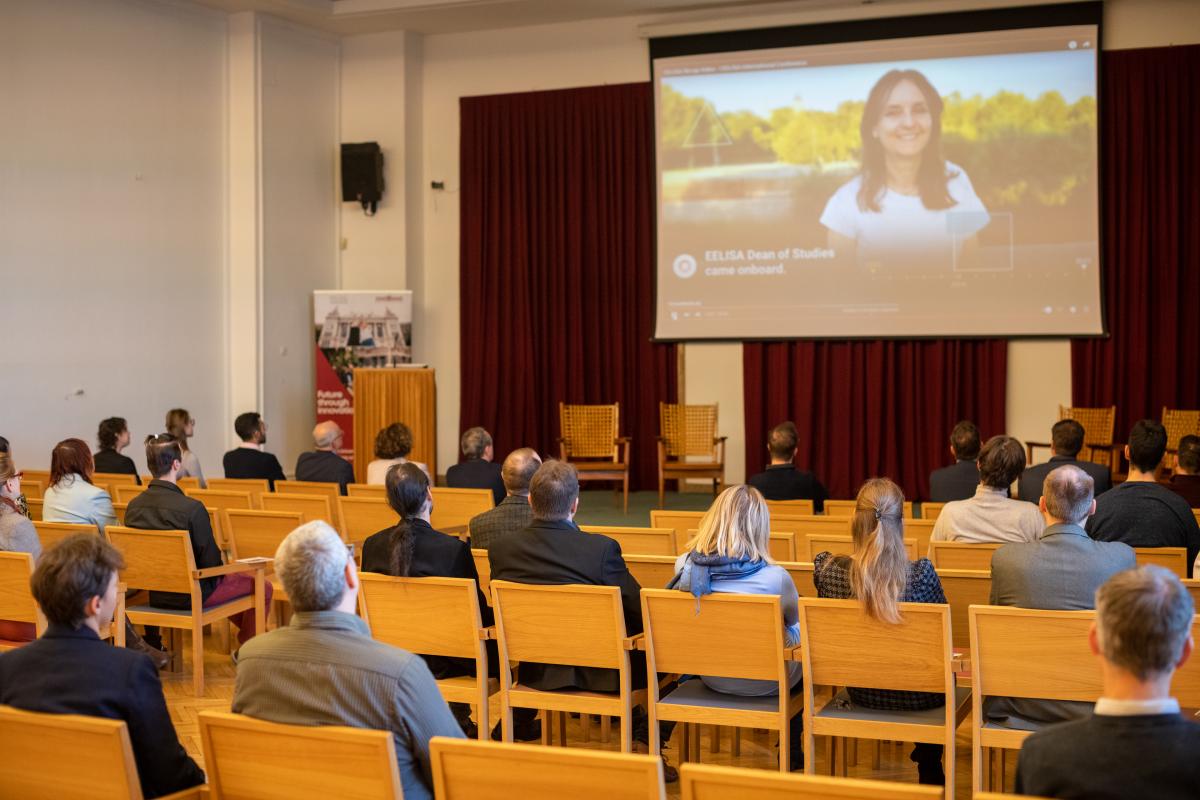
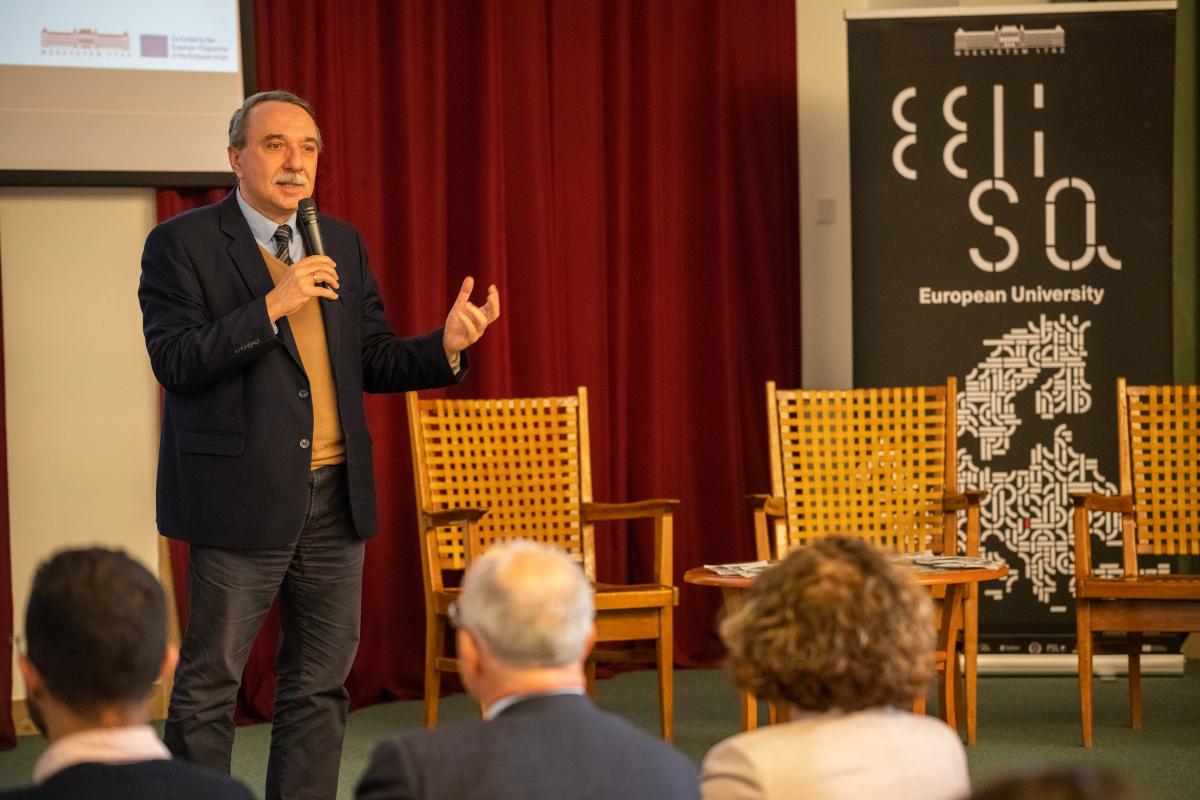
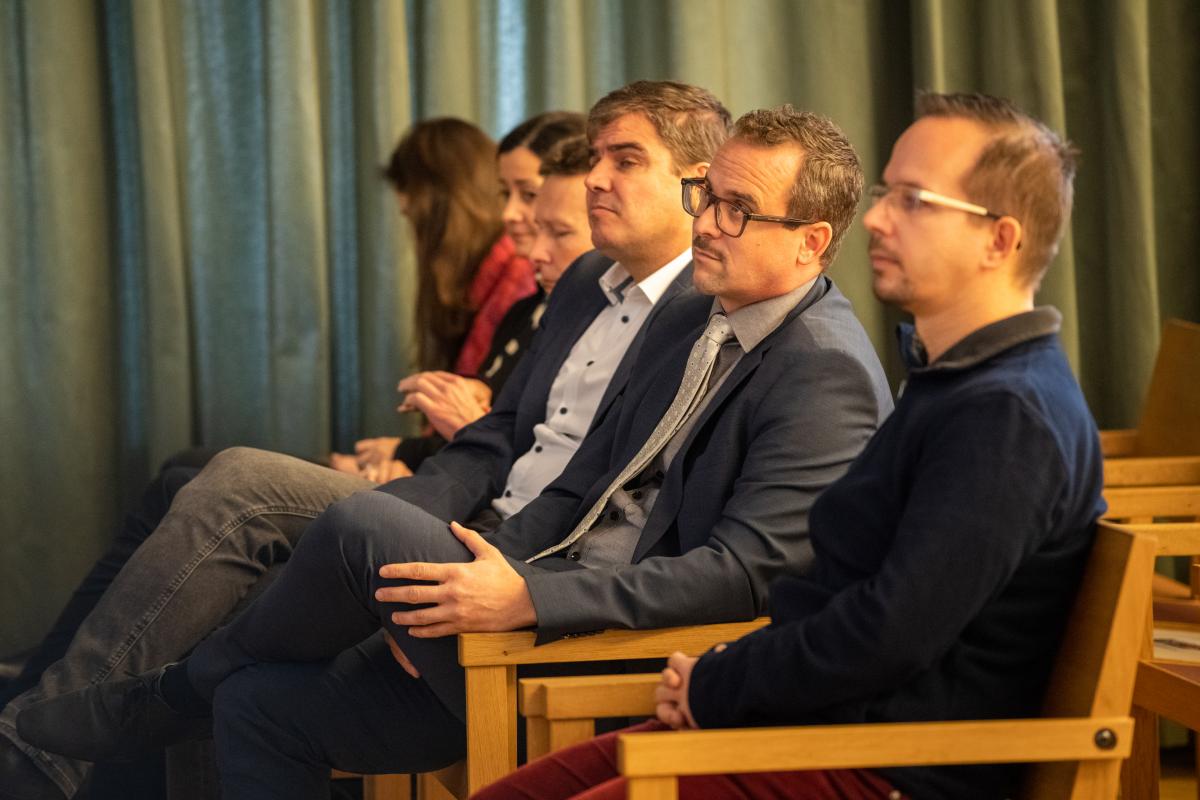
In his welcome speech, Tibor Czigány emphasised that participation as a Hungarian university in international collaborations is a special honour and great responsibility at the same time. BME is actively engaged in the alliance with its full portfolio including not only its engineering but business programmes as well. The rector thanked the colleagues for their contribution to EELISA’s success and also set new goals: ‘Our current mission is to introduce EELISA to even more of our colleagues, students and secondary school students as well. We should tell students who are about to start higher education that they do not need to choose a university abroad as BME is a member of EELISA and, as a result, they can spend a semester in one of Europe’s best technology universities and can work in various EELISA communities. The partner universities efficiently work together to receive funding from the EU’s HORIZON programme and prioritise sustainability as a shared value. The members of the alliance also want to incorporate art and culture into their education activities, in which area, BME sets an example with an excellent innovation, a shared project with the Hungarian National Bank called the Art Residency Programme. During the closing conference of the first project in Bucharest, it was amazing to see the enthusiasm of hundreds of people, to experience this fantastic sense of community and to understand why it is said that EELISA is a family. My wish for all the participants of the EELISA 2.0 project is to keep feeling the same way,’ Tibor Czigány, rector said in concluding his welcome speech.

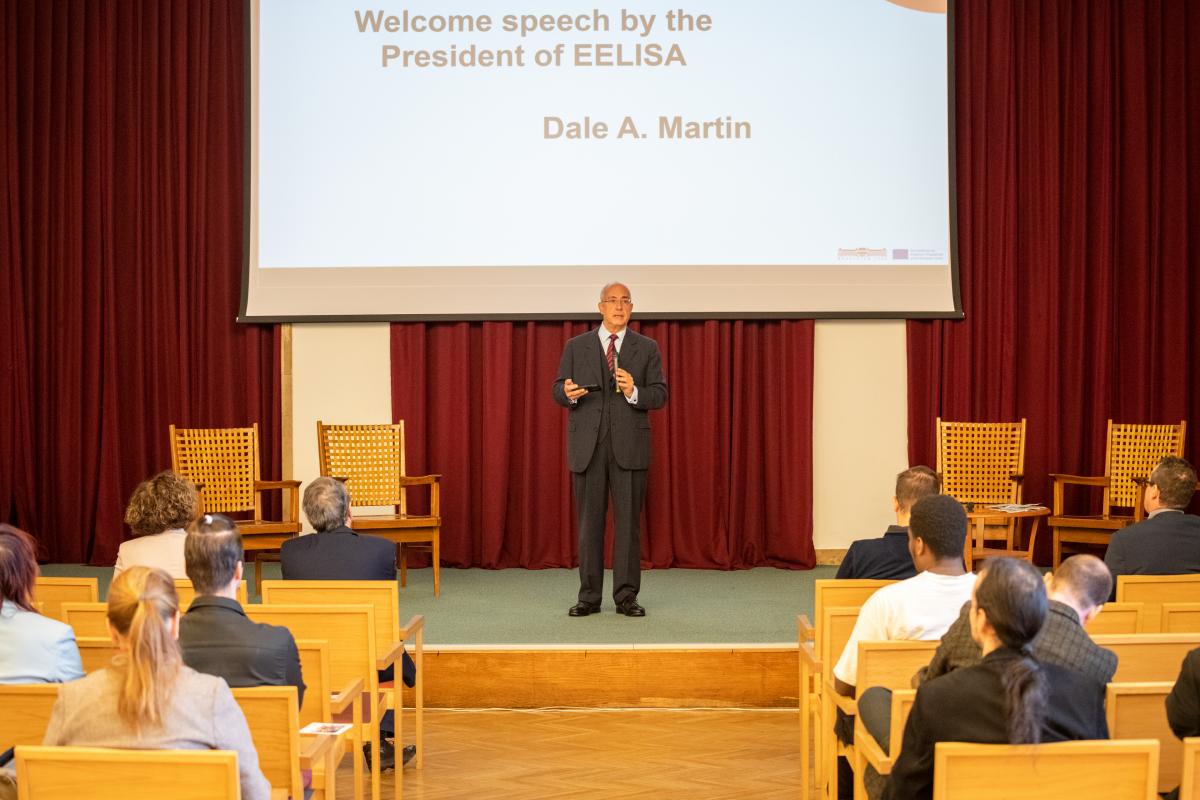
| EELISA aims to transform European higher education while strengthening links between engineering and society. BME joined this new and progressive initiative as founding member in 2020. At the time, BME entered into an alliance with eight other prestigious European universities to work as part of the EELISA consortium to start joint degree programmes and research projects while making efforts to achieve the long-term goal of a single cross-border European accreditation in engineering. As the alliance now includes Switzerland as well, this cooperation allows BME students and researchers to study at the universities of Pisa, Erlangen, Istanbul, Paris, Madrid, Bucharest and Zurich. |
Next, Dale Martin, EELISA’s president said that the alliance made robust progress in the fist phase to achieve its long term vision and mission. It strengthened the links between education, research and innovation while also starting to build common institutional and management structures. ‘BME is a key partner in this success and a highly appreciated member of the alliance. As proof of that, I am glad to announce that one of the excellent members of BME’s Faculty of Mechanical Engineering, Dr. Balázs Vince Nagy was just recently unanimously selected for the position of chairman of EELISA’s executive board,’ said Dale Martin. ‘Thanks to our fantastic shared achievements in the first phase, we, EELISA were granted the opportunity to move onto the second phase. My most important message is that EELISA is more than just an exciting, excellent project. Out goal is to accomplish our vision by transforming the partner universities contributing to the development of inclusive, sustainable digital societies. To achieve our goals, I wish powerful dedication to all of us. Let’s move ahead together, build a successful EELISA we can all benefit from,’ said Dale Martin, EELISA’s president in conclusion of his welcome speech.
The next section of the event included introductions from BME established EELISA communities, which also shared their experiences from their past activities and presented their ideas for the EELISA 2.0 project. This was followed by introductions of BME teams working in other EELISA communities. (Editor’s note: EELISA communities and teams will be introduced in an upcoming article.)
| BME established EELISA communities:SusCo = Sustainable Competences Interdisciplinarity for Sustainable Competences in Engineering EducationVision and Engineering CommunityYoung Researchers for Interdisciplinary Sustainability Science EELISA communities with BME participation:EELISA on the moveSustainable Buildings, Cities, and CommunitiesTech Diplomacy & International Cooperation |
After the presentation from the representatives of the communities, the heart, soul, leader of the BME EELISA team, László Gergely Vígh, director of the Directorate of Foreign Language Programmes, introduced the BME working groups of the community in detail and described their organisational structure. He also highlighted an innovation from BME, the EELISA Ambassador Network, which is currently being developed and will consist of students and faculty representatives. ‘The working group selection in the second EELISA project clearly shows that the promotion of strategic, educational and research collaborations will be the priority,’ said László Gergely Vígh.
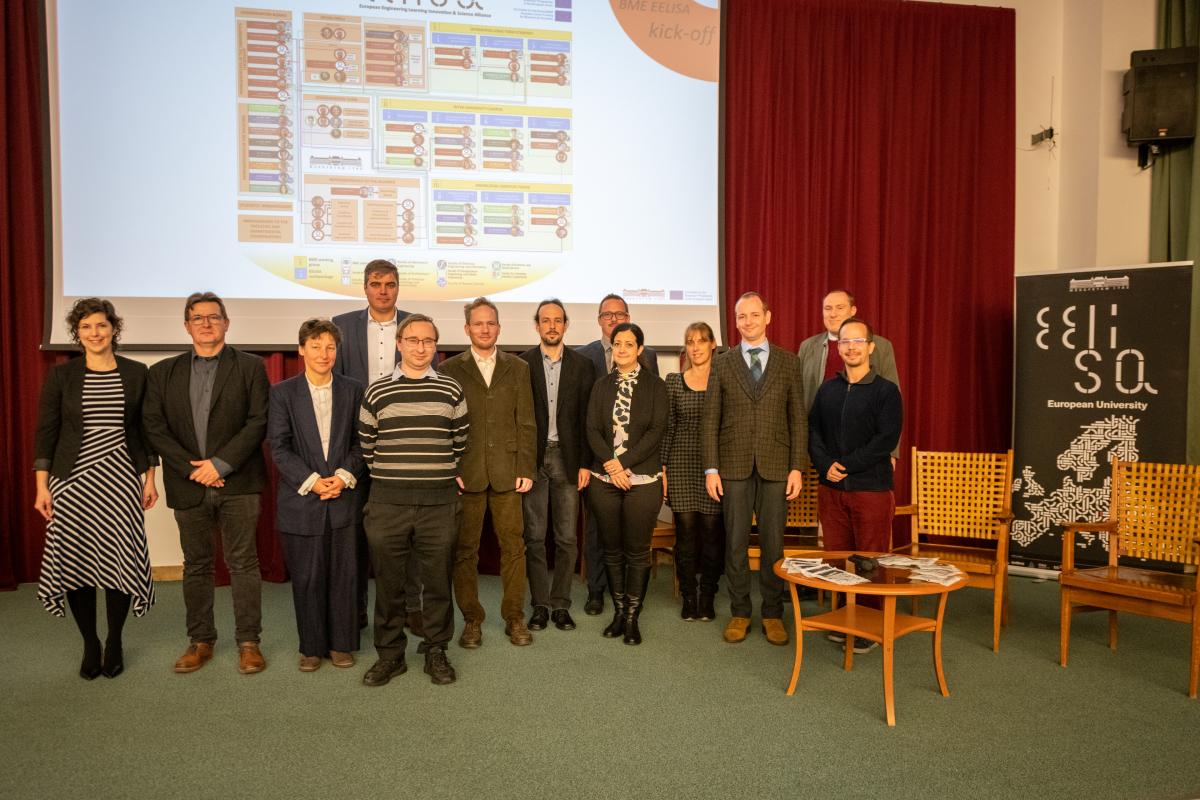
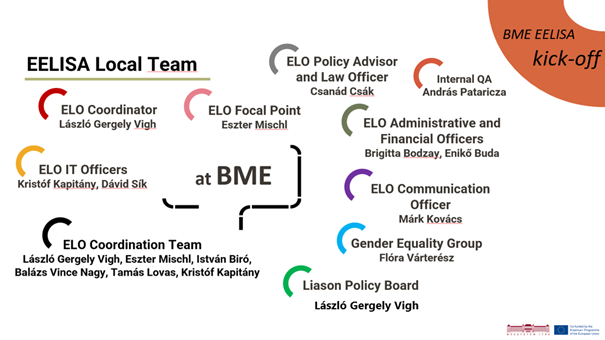
Universities participating in the EELISA cooperation. Further information on the partners is available on the EELISA website.

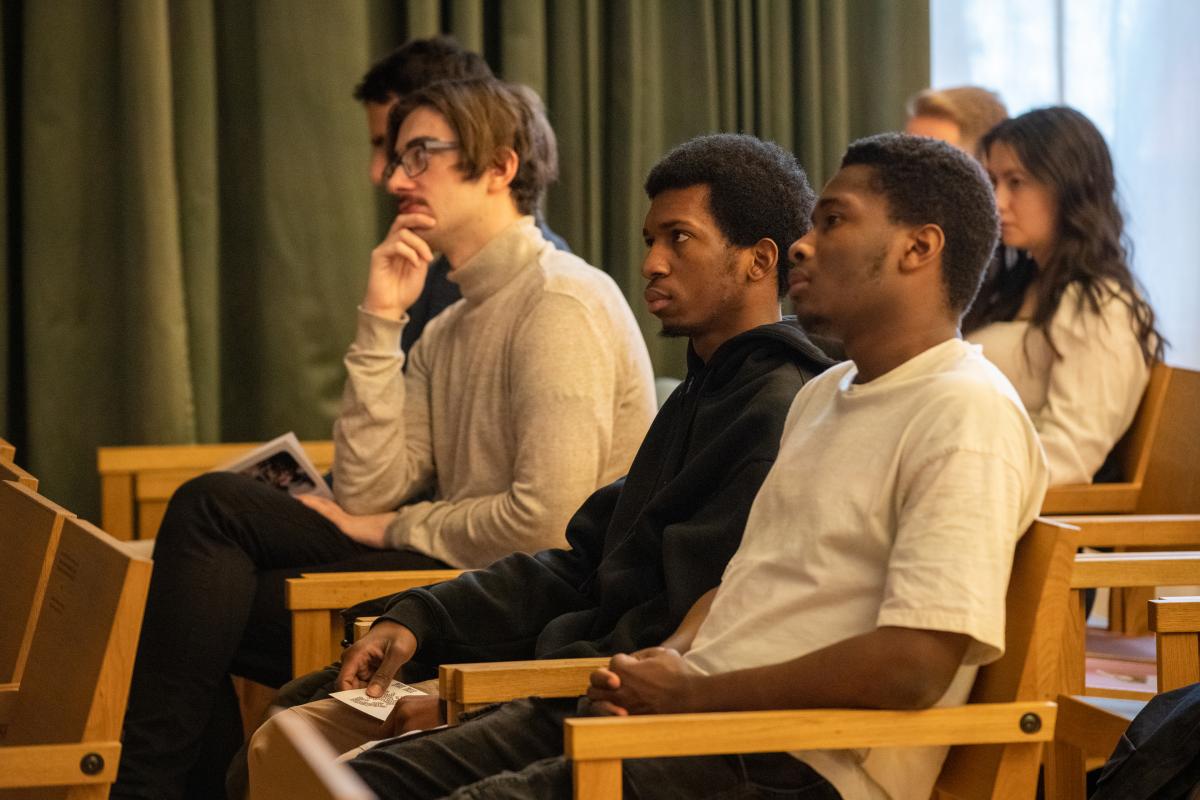
In her closing speech, Emília Koczka, née Csiszár, vice-rector for international affairs, said that she was certain that BME’s membership in EELISA improves BME’s competitiveness not only in Europe but across the globe promoting the development of its resources and the achievement of its internationalisation goals. ‘Similarly to our rector, I think what will be important in the second phase is to inform as many of our colleagues as possible about the opportunities for education and research provided by the alliance and to actively work on the renewal of the engineering sector in Europe. Our most important job in the next four years, in addition to our project duties, will be to convince our colleagues that there are a multitude of opportunities for them to join the EELISA family. I believe that our second project will be just as successful as the first one. I wish that we continue to enjoy working together just as we have until now,’ said Emília Koczka, née Csiszár in conclusion of the event.

